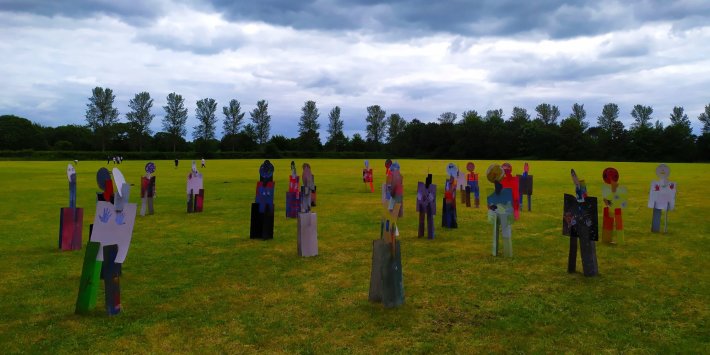Celebrating women artists, activists, writers, performers, community groups and organisations, with a diverse programme of…

How arts-in-nature experiences can boost the wellbeing of children and young people
Arts-in-nature practice improves mental health and connection with nature.
New research led by Professor Nicola Walshe at UCL shows that arts-based interventions for children and young people delivered outdoors, or ‘arts-in-nature’ experiences, offer creative and inclusive means to promote children’s mental health and connection with nature. These activities are particularly beneficial for children with risk factors associated with adverse mental health, including those from low income households, those with special educational needs/neurodevelopmental differences, or those who have had adverse childhood experiences, all of whom may feel excluded from existing educational programs.
With four out of five UK children not feeling connected to nature1, spending creative time outdoors is more important than ever. Based upon the overwhelmingly positive effects of arts-in-nature experiences within and beyond the UK, this research suggests that these practices should be an integral part of the primary education curriculum, as well as being incorporated into the wider mental health infrastructure, including integrated care services.
Policy Context
Arts-in-nature practice sets to address three contemporary societal challenges: a sharp rise in children’s mental health problems; an increasing disconnect from nature; and a school curriculum that fails to draw on our cultural, community and natural assets. Mental health problems cost the UK economy £118 billion annually, yet most of this is preventable2. In children and young people, the rates of mental health disorders have seen a sharp rise from 1 in 9 (12.1%) in 2017 to 1 in 6 (16.7%) in 20203. In response to what has been described as a mental health crisis, the UK government’s Mental Health Recovery Action Plan has been backed by £500 million of funding; of which, £79 million will be allocated to children and young people4.







